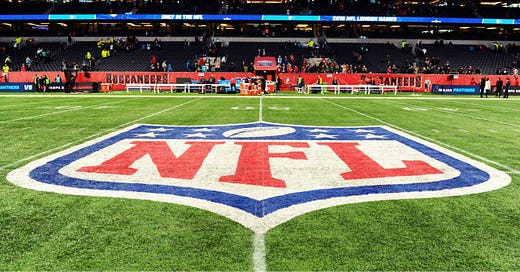The NFL's Multi-Billion-Dollar Decision
The NFL has officially agreed to add a 17th regular-season game to the schedule starting next year, but what does this mean for overall player salaries?
Every morning I write an email discussing the business and money behind sports. If you would like to receive it directly in your inbox, subscribe now.


